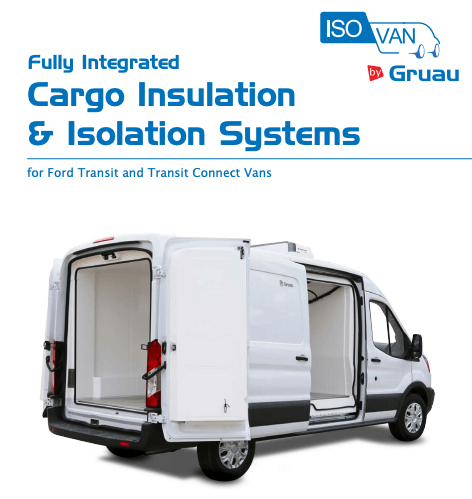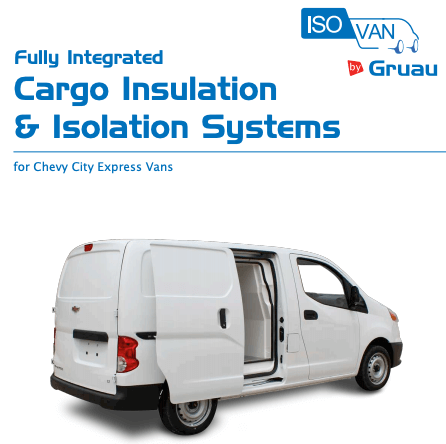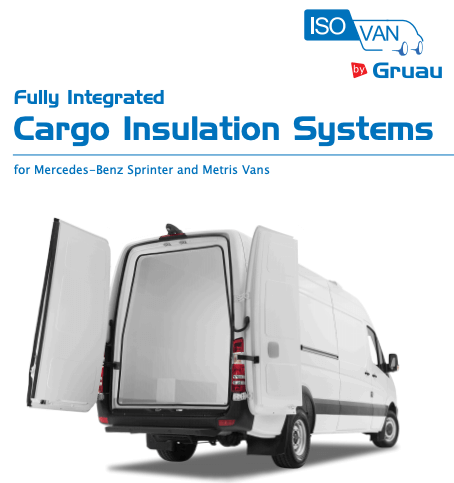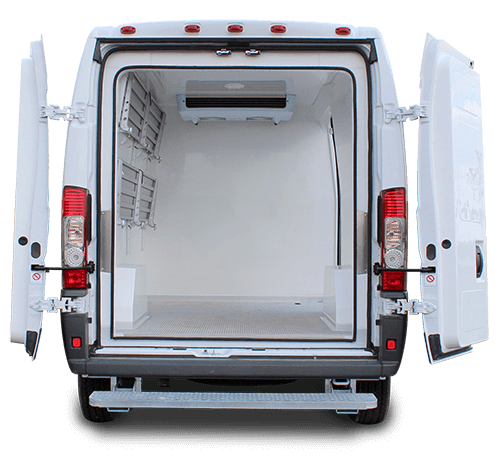Phenix Truck Bodies and Equipment offers complete fleet solutions by providing world-class customer experiences, equipment, and accessories built to your business’s exact specifications. Let’s have a conversation about what you need to succeed, and we will be sure to provide.
How Phenix complies with FSMA!
Gruau certified insulations protect shippers, loaders, carriers and receivers against litigation in light of the recent Food Safety Modernization Act / STF enforced April 2018 for small and medium businesses. Beyond the FSMA, you will recognize our product with the following attributes:
ISO VAN
The IsoVan family of products includes both IsoTemp and IsoChem. Both products are built with the same design that has been refined for over four decades. IsoVan products are engineered specifically for the van they are installed in, resulting in a superior fit and finish.
TRACKING SYSTEM
Phenix Gruau vans offer temperature control with a temperature log available at delivery.
Phenix Enterprise
Phenix Solution
The IsoVan family of products includes both IsoTemp and IsoChem. Both products are built with the same design that has been refined for over four decades. IsoVan products are engineered specifically for the van they are installed in, resulting in a superior fit and finish.
Ready to discuss your business project now?
Food Safety Modernization Act
We want you to understand that there is a new regulation regarding the transportation of food products.
The following are questions and answers related to the Food Safety Modernization Act (FSMA).
Sanitary Transportation of Human and Animal Food
In 1990, Congress passed the Sanitary Food Transportation Act (SFTA) of 1990 and delegated primary authority to implement the law to the Department of Transportation (DOT). With the passage of the 2005 SFTA, Congress reallocated authority for food transportation safety to FDA, DOT, and U.S. Department of Agriculture (USDA), and the FDA now has the lead role among federal agencies in regulating the safety of food during transport. However, both DOT and the USDA have a role as partners with the FDA in the broad federal food safety structure.
With the update of SFTA in 2005, Congress directed the FDA to establish regulations on sanitary transportation practices for food. As part of the implementation of the 2005 SFTA, the FDA has collected information on current best practices in the food transportation industry through an April 2010 Advance Notice of Proposed Rulemaking published in Federal Register and a 2009 study commissioned to characterize current baseline practices and to identify current areas where food is at risk. This rule implements the 2005 SFTA as well as the requirement in section 111 of the FDA Food Safety Modernization Act (FSMA) that instructed FDA to issue SFTA regulations.
In April 2010, FDA also issued guidance to provide the industry with broadly applicable recommendations for controls to prevent food safety problems during transport. This guidance and other information about regulations and guidance applicable to food transportation are available on FDA’s Sanitation & Transportation Guidance Documents & Regulatory Information page.
As with the other FSMA rules, FDA is committed to developing training and technical assistance. Food industry training will be an important component of successful implementation of FSMA, as will be outreach to foreign trading partners. The agency will also use its partnerships with other Federal agencies (such as the U.S. Department of Transportation) and with state, local, and tribal entities to implement this rule.
FDA will carry out some inspections, and the Department of Transportation, under the 2005 SFTA, will also establish procedures for transportation safety inspections to be conducted by DOT or state personnel. FDA maintains its ability to take enforcement action when agency efforts to work with a company fail to achieve compliance, but promoting a strong food safety culture is FDA’s first priority.
Generally, the requirements of the Sanitary Transportation rule apply to shippers, receivers, loaders, and carriers engaged in transportation operations whether or not the food is being offered for or enters interstate commerce. (21 CFR 1.900(a))
A. Definitions
The Sanitary Transportation rule uses a number of terms in very specific ways. A full list of these terms appears in this guide in section IX. The terms defined here and in the section “Who is exempt from the requirements of the Sanitary Transportation rule?” will help you determine if your business is subject to the rule. (21 CFR 1.904)
Table 1–Key Terms Used in Part 1, Subpart O
| Term | Definition |
|---|---|
| Carrier | A person who physically moves food by rail or motor vehicle in commerce within the United States. The term carrier does not include any person who transports food while operating as a parcel delivery service. |
| Loader | A person that loads food onto a motor or rail vehicle during transportation operations. |
| Non-covered business | A shipper, loader, receiver, or carrier engaged in transportation operations that has less than $500,000, as adjusted for inflation, in average annual revenues, calculated on a rolling basis, during the 3-year period preceding the applicable calendar year. The baseline year for calculating the adjustment for inflation is 2011. |
| Receiver | Any person who receives food at a point in the United States after transportation, whether or not that person represents the final point of receipt for the food. |
| Shipper | A person, e.g., the manufacturer or a freight broker, who arranges for the transportation of food in the United States by a carrier or multiple carriers sequentially. |
| Small business |
|
| Transportation | Any movement of food in by motor vehicle or rail vehicle in commerce within the United States. |
Non-covered businesses (see definition in Table 1) are not subject to the rule and therefore do not need to comply with the rule. In addition, shippers, receivers, loaders, or carriers subject to the Sanitary Transportation rule do not need to comply with the rule when they are engaged in the following transportation operations and activities.
Table 2–Exemptions for Part 1, Subpart O
| Exemption | Conditions |
|---|---|
| Transportation operations of food that is transshipped through the U.S. to another country 21 CFR 1.900(b)(1) | |
| Transportation operations of food that is imported for future export 21 CFR 1.900(b)(2) |
|
| Transportation operations of food located in food facilities that are regulated exclusively, throughout the entire facility, by the U.S. Department of Agriculture under the Federal Meat Inspection Act, the Poultry Products Inspection Act, or the Egg Products Inspection Act 21 CFR 1.900(b)(3) |
|
| Transportation activities performed by a farm 21 CFR 1.904 “Transportation operations” |
|
| Transportation of compressed food gases 21 CFR 1.904 “Transportation operations” |
|
| Transportation of food contact substances 21 CFR 1.904 |
Food contact substances as defined in section 409(h) of the Federal Food, Drug, and Cosmetic Act |
| Transportation of human food byproducts for use as animal food without further processing 21 CFR 1.904 “Transportation operations” |
See definition of “Transportation operations” |
| Transportation of food that is completely enclosed by a container 21 CFR 1.904 “Transportation operations” |
Except a food that requires temperature control for safety |
| Transportation of live food animals 21 CFR 1.904 “Transportation operations” |
Except molluscan shellfish |
We encourage you to comply with the Sanitary Transportation rule as soon as possible. However, we are not requiring you to comply with the rule right away. As shown in the table below, the amount of time we are allowing you to comply with the Sanitary Transportation rule depends on the size of your particular business.
Table 3–Compliance Dates for the Sanitary Transportation Rule Based on Size of Business
| Size of Business | Compliance Date |
|---|---|
| Small businesses, i.e., a business other than a motor vehicle carrier with fewer than 500 full-time equivalent employees, or a motor vehicle carrier that is not also a shipper or a receiver that has less than $27,500,000 in annual receipts | April 6, 2018 |
| Other businesses that do not qualify for exemptions | April 6, 2017 |
“Transportation equipment” means equipment used in food transportation operations and includes items such as bulk and non-bulk containers, bins, totes, pallets, pumps, fittings, hoses, gaskets, loading systems, and unloading systems. Transportation equipment also includes a railcar not attached to a locomotive or a trailer not attached to a tractor. (21 CFR 1.904)
Vehicles and transportation equipment used in transportation operations must:
- Be designed and of such material and workmanship as to be suitable and adequately cleanable for their intended use to prevent the food they transport from becoming unsafe during transportation; (21 CFR 1.906(a))
- Be maintained in such a sanitary condition for their intended use as to prevent the food they transport from becoming unsafe during transportation; and (21 CFR 1.906(b))
- Be stored in a manner that prevents their harboring pests or becoming contaminated in any other manner that could result in food for which they will be used becoming unsafe during transportation. (21 CFR 1.906(d))
Yes, vehicles and transportation equipment used in the transportation of food requiring temperature control for safety must be designed, maintained, and equipped as necessary to provide adequate temperature control to prevent the food from becoming unsafe during transportation. (21 CFR 1.908(c))
You must meet the requirements for each function you perform that is subject to the rule, i.e., as a shipper, receiver, loader or carrier. Therefore if you are functioning as both the shipper and the carrier, you must meet both the shipper’s and the carrier’s requirements. (21 CFR 1.908(a)(1))
If you perform multiple functions under the rule, and are under the ownership or operational control of a single legal entity, as an alternative to meeting the rule’s specific requirements for shippers, receivers and carriers, you may operate under common, integrated written procedures that ensure the sanitary transportation of food consistent with the requirements of the Sanitary Transportation rule. Establishing these common integrated procedures may make it easier for you to comply with the rule’s requirements. These written procedures are subject to the records requirements of the rule which are discussed in Section VII. (21 CFR 1.908(a)(5))
Yes. Everyone subject to the rule must do these things in their transportation operations:
- You must take effective measures such as segregation, isolation, or the use of packaging to protect food from contamination by raw foods and nonfood items in the same load. (21 CFR 1.908(a)(3)(i))
- You must take effective measures such as segregation, isolation, or other protective measures, such as hand washing, to protect food transported in bulk vehicles or food not completely enclosed by a container from contamination and cross-contact during transportation operations. (21 CFR 1.908(a)(3)(ii))
- You must take effective measures to ensure that food that requires temperature control for safety is transported under adequate temperature control. (21 CFR 1.908(a)(3)(iii))
